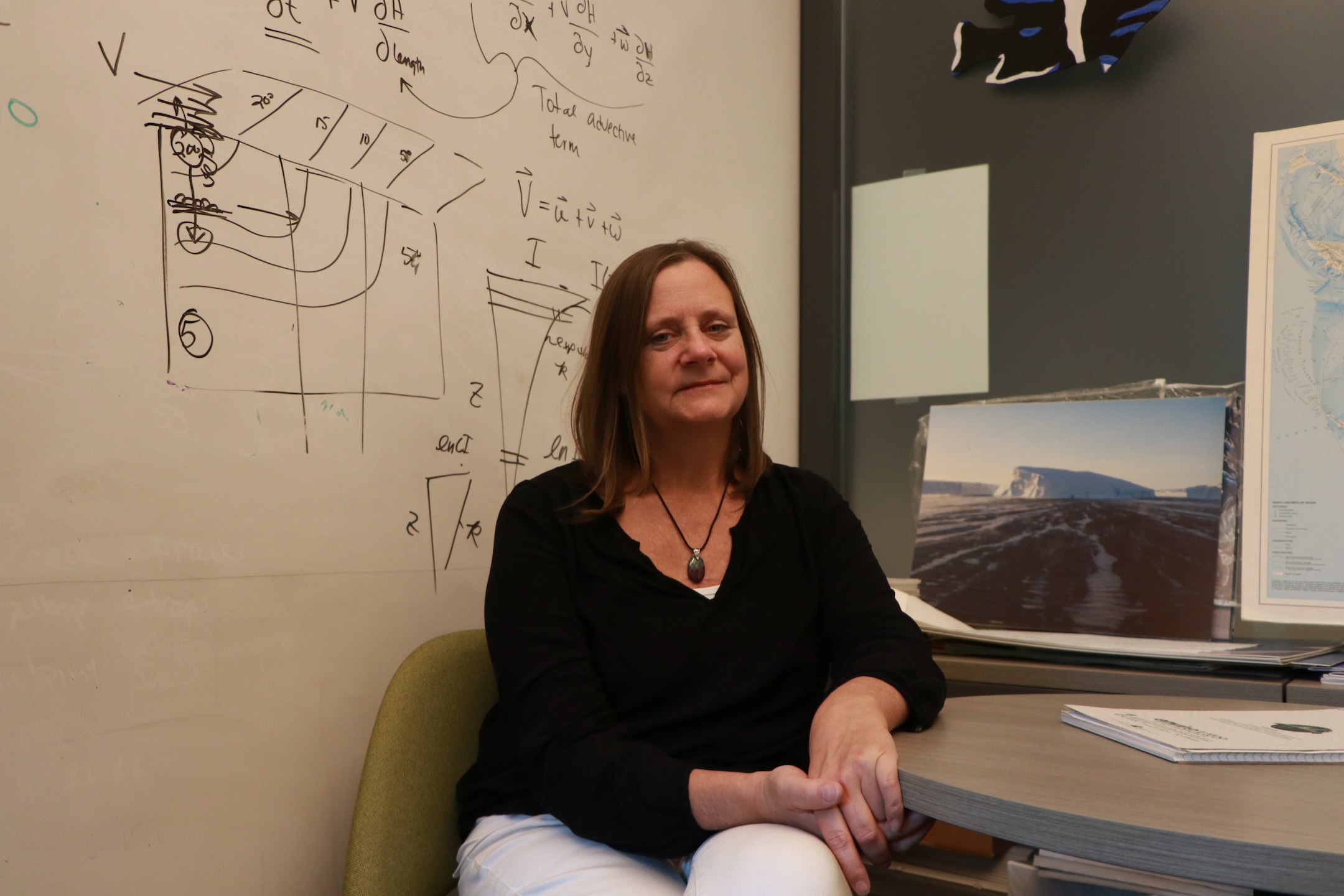PACE-ing herself: Collin Roesler explores the deep sea
October 4, 2019
Even in her 10th year at Bowdoin, Professor of Earth and Oceanographic Science Collin Roesler’s eyes light up as she discusses her research in oceanography. For the past three years, Roesler has been studying how phytoplankton in the ocean capture and export carbon dioxide into deeper areas and remove the gas from the atmosphere as part of the National Aeronautics and Space Administration’s (NASA) Export Processes in the Ocean from Remote Sensing (EXPORTS) mission.
Now the project is going airborne, as NASA begins the Plankton, Aerosol, Cloud, ocean Ecosystem (PACE) mission to send a satellite into space that can measure, with unprecedented precision, the colors of the ocean. This allows scientists to recognize specific types of phytoplankton and better understand ocean health.
 Sophia Wei
Sophia Wei“[With PACE’s sensors] we could constantly be assessing how much carbon is leaving the atmosphere, and then we can do a better job figuring out how we might be able to mitigate some of the carbon in the atmosphere,” Roesler said.
For Roesler, PACE is rewarding not only because of the program’s mission, but also because of its emphasis on achieving goals through teamwork and consensus. Typical projects in her field are often more solitary.
“We would talk and we would compare and have respectful discussions,” Roesler said. “By the time we came up with our final products, everybody had vetted it [and] felt that they had a piece of ownership. … It’s been a really amazing research project to be on.”
Roesler’s work with NASA and her love for the ocean have deep roots. As a child living in Colorado, far from the physical ocean, Roesler found herself mesmerized by oceanographer Jacques Cousteau’s weekly television shows. Since then, Roesler knew she wanted to study the ocean.
“I know that it’s incredibly rare, and I never tried to say to my students ‘you should know what you want to be when you grow up,’ because you honestly shouldn’t,” Roesler said. “But when you find the thing, you know it—you get that feeling of ‘I can’t imagine doing anything else.’ And honestly, I can’t.”
Roesler studied aquatic biology and geology at Brown University. She later earned her Ph.D. at the University of Washington for developing algorithms that allow satellite observation of phytoplankton concentrations. After such measurements became possible, Roesler wanted to push the boundaries and began to work on algorithms that could discern individual phytoplankton species. Her work in that field ultimately landed her a spot on the PACE science team.
For Roesler, however, her research connects to something larger than the PACE team.
“If I can help contribute to people’s understanding of how the world works, maybe they will be more thoughtful about their actions … and maybe make choices that are not in their own best interest but in the world’s best interest,” Roesler said. “Recognizing that there are winners and losers in this climate change, I think we need to be thinking really seriously about how we are going to care for our communities that are going to be more impacted than others.”
“I think we need to be thinking about being a little kinder, a little bit more giving and thinking a little bit less about ourselves and our needs.”

Comments
Before submitting a comment, please review our comment policy. Some key points from the policy: